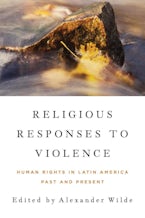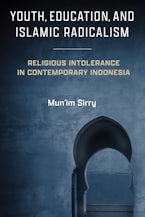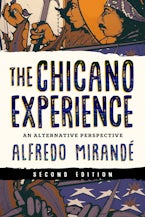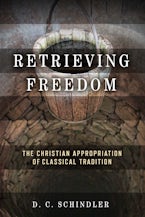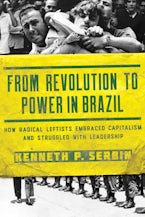"This book makes an important and original contribution to the fields of religion and politics and to the study of human rights and violence in contemporary Latin America. Religion is treated seriously, by authors who really understand it. The book also brings fresh research and a long view to bear on its examination of civil violence and rights. Scholars and students in a range of disciplines—history, anthropology, sociology, political science, and religion—will find this book of great value." —Frances Hagopian, Harvard University
"As the Middle East is today, so was Latin America for decades during the last century, with major stories on every front page and evening news program and with the role of the Church often front and center. Violence pervades much of the region today, especially in Central America, but one hears less of the role of religion now. This volume is a most welcome addition to the study of religion and human rights in the Americas and brings together excellent studies of less covered areas of the recent past and exciting treatments of the new roles of religion in today’s conflict areas." —Tom Quigley, former policy advisor on Latin America and the Caribbean to the U.S. Conference of Catholic Bishops
"A generation or two ago, the image of church people faced with state-sponsored violence in Brazil, Chile, Argentina, and Central America prompted numerous studies and inspired many to organize and march. This collection sheds new light on those familiar stories and examines the perplexing violence of the present and responses to it, such as pentecostal prison ministry in Brazil and church groups assisting migrants fleeing through Mexico. Each study, whether local, national, or regional, is a treasure; they are enhanced by thematic surveys that bring fresh insight for a new generation of scholars and readers." —Phillip Berryman, author of Religion in the Megacity: Catholic and Protestant Portraits from Latin America
"Religious Responses to Violence contains 15 chapters by experts on Argentina, Brazil, Central America, Chile, Colombia, Mexico, and Peru. They cover the history of Latin America from the mid-twentieth century to the present—roughly from Vatican II to Pope Francis and from the early development of Evangelical churches to their current prominence in communities and politics. . . . Anyone involved in that great movement will benefit from reading Religious Responses to Violence." —Friends Journal
“The book begins with the paradox that ‘modern Latin America is both notably violent and notably religious’ and ends with the empirically based conclusion about ‘the unique qualities of religious as a social force against violence.’ . . . Religious actors play an ongoing and irreplaceable role in acting as an antidote to the universal hold of justice as a revenge seeking lex talionis that so far has been noticed by a few anthropological studies but not the public eye. Religious Responses to Violence is not an easy to read primer. But it’s a necessary one.” —Catholic Book Reviews
“The 15 contributions reveal the multiple and at times conflicting responses from churches that range from active non-violence to challenging state violence, accompanying popular mobilizations, supporting development projects, and taking up arms in support of revolutionary movements. The volume makes a key contribution to understanding religion in contemporary Latin America.” —Choice
“This book has much to offer. Featuring scholars from different disciplines, it presents a wonderful account of historical events and analysis of what Latin Americans had experienced during the political and social turbulence of the region from the 1970s to the present times . . . the topics complement each other and are relevant to anyone working on this issue today.” —Theological Studies
